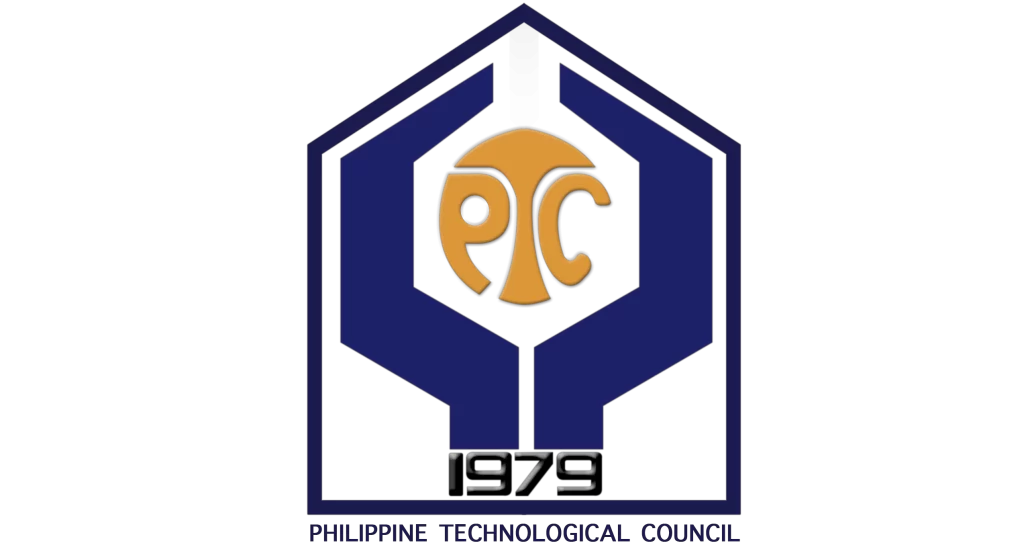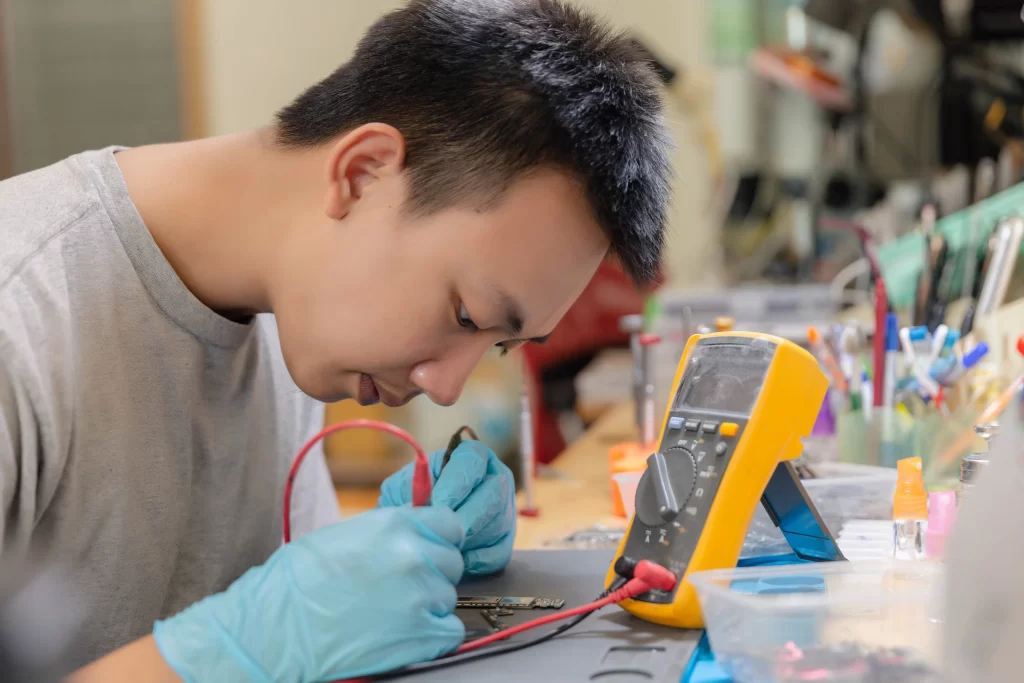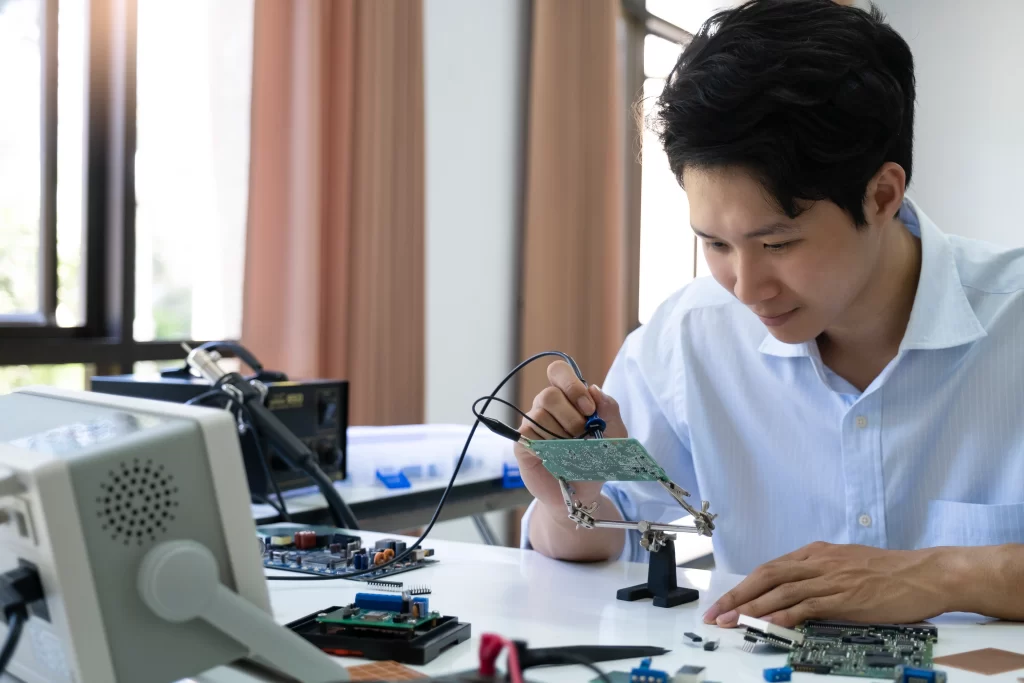Accredited Programs


Programs Accredited by Belgium FPS Mobility – DG Shipping

Bachelor of Science in
Marine Engineering
B.S. Marine Engineering
Program Description
The Bachelor of Science in Marine Engineering is a maritime education program that covers the mandatory education and training for Officers in Charge of an Engineering Watch required under Regulation III/1 of the STCW Convention, 1978, as amended.
Being a dynamic profession, its curriculum is organized, planned and periodically reviewed to comply with the latest industry standards to develop those skills and abilities that are necessary in pursuing a professional career at sea and as global maritime practitioners.
Educational Objectives
The Bachelor of Science in Marine Engineering Program aims to:
- Produce competent Officers in Charge of an Engineering Watch in manned engine-room or as designate duty engineer in periodically unmanned engine-room on seagoing ships powered by main propulsion machinery of 750 kW or more.
- Produce graduates who are qualified to pursue a professional career or advanced studies in related maritime field of specialization.
Student Outcomes
The graduates of Bachelor of Science in Marine Engineering Program are expected to:
- Demonstrate the competence to perform the functions pertaining to marine engineering, electrical, electronic and control engineering, maintenance and repair , controlling the operation of the ship and care for persons on board the ship at the operational level and acquire the specific knowledge and understanding under Table A-111/2 of the STCW Code that are covered by this program;
- Apply knowledge in mathematics, science and technology in solving problems related to the profession and the workplace;
- Evaluate the impact and implications of various contemporary issues in the global and social context of the profession;
- Use appropriate techniques, skills and modern tools in the practice of the profession in order to remain globally competitive;
- Conduct research using appropriate research methodologies;
- Work independently and in multi-disciplinary and multi-cultural teams;
- Act in recognition and practice of professional, social, and ethical accountability and responsibility;
- Preserve and promote “Filipino historical and cultural heritage”

Bachelor of Science in
Marine Transporation
B.S. Marine Transportation
Program Description
The Bachelor of Science in Marine Transportation is a maritime education program that covers the mandatory education and training for Officers in Charge of a Navigational Watch required under Regulation II/1 of the STCW Convention, 1978, as amended.
Being a dynamic program, its curriculum is organized, planned and periodically reviewed to comply with the latest industry standards to develop those skills and abilities that are necessary in pursuing a professional career at sea and as global maritime practitioners.
Educational Objectives
- To produce competent merchant marine deck officers on seagoing ships of 500 gross tonnage or more.
- Produce graduates who are qualified to pursue a professional career or advanced studies in related maritime field of specialization.
Student Outcomes
Graduates of the Bachelor of Science in Marine Transportation program are expected to:
- Demonstrate the ability to perform the competence, at the operational level under Table II/1 and some elements of Table A-II/2 of the STCW Code;
- Apply knowledge in mathematics, science and technology in solving problems related to the profession and the workplace; use appropriate techniques, skills and modern tools in the practice of the profession in order to remain globally competitive;
- Evaluate the impact and implications of various contemporary issues in the global and social context of the profession;
- Use appropriate techniques, skills and modern tools in the practice of the profession in order to remain globally competitive; work independently and in multi-disciplinary and multi-cultural teams;
- Conduct research using appropriate research methodologies;
- Engage in lifelong learning and understanding of the need to keep abreast of the developments in Maritime practice;
- Communicate orally and in writing using both English and Filipino;
- Work independently and in multi-disciplinary and multi-cultural teams;
- Act in recognition and practice of professional, social, and ethical accountability and responsibility;
- Preserve and promote “Filipino historical and cultural heritage.”
Programs Accredited by PTC-ACBET

Bachelor of Science in
Chemical Engineering
B.S. Chemical Engineering
Program Description
The Bachelor of Science in Chemical Engineering program provides an opportunity for developing skills, knowledge, and competencies not only in basic engineering but also in areas related to chemical industries such as in the production of chemicals, drugs, food, materials, cement, energy, and other consumer products. The program is based on the application of mathematics, chemistry, physics, material science, and economics. Computer applications are vital to the program.
Educational Objectives
- Graduates of chemical engineering program will have the technical skills and professional qualifications to become competent engineers who can support the industry, academe, or government.
- Graduates of chemical engineering program will be collaborators and innovators in the field, leading or participating in efforts to address social, technical, ethical, and business challenges.
- Graduates of the chemical engineering program will be engaged in life-long learning and professional development.
Student Outcomes
Graduates of the Bachelor of Science in Chemical Engineering program are expected to demonstrate:
- Apply knowledge of mathematics, natural science, engineering fundamentals and an engineering specialization to the solution of complex engineering problems.
- Conduct investigations of complex engineering problems using research-based knowledge and research methods including design of experiments, analysis and interpretation of data, and synthesis of information to provide valid conclusions.
- Design solutions for complex engineering problems and design systems, components or processes that meet specified needs with appropriate consideration for public health and safety, cultural, societal, and environmental considerations.
- Function effectively as an individual, and as a member or leader in diverse teams and in multi-disciplinary settings.
- Identify, formulate, research literature and analyze complex engineering problems reaching substantiated conclusions using first principles of mathematics, natural sciences and engineering sciences.
- Apply ethical principles and commit to professional ethics and responsibilities and norms of engineering practice.
- Communicate effectively on complex engineering activities with the engineering community and with society at large, such as being able to comprehend and write effective reports and design documentation, make effective presentations, and give and receive clear instructions.
- Understand and evaluate the sustainability and impact of professional engineering work in the solution of complex engineering problems in societal and environmental context.
- Recognize the need for, and have the preparation and ability to engage in independent and life-long learning in the broadest context of technological change.
- Apply reasoning informed by contextual knowledge to assess societal, health, safety, legal and cultural issues and the consequent responsibilities relevant to professional engineering practice and solutions to complex engineering problems.
- Create, select and apply appropriate techniques, resources, and modern engineering and IT tools, including prediction and modelling, to complex engineering problems with an understanding of the limitations.
- Demonstrate knowledge and understanding of engineering management principles and economic decision-making and apply these to one’s own work, as a member and leader in a team, to manage projects and in multidisciplinary environments.

Bachelor of Science in
Civil Engineering
B.S. Civil Engineering
Program Description
The Bachelor of Science in Civil Engineering program aims to provide the highest quality, broad-based technical, scientific, and liberal education to enable students to qualify for graduate or advanced education and professional work in a wide range of civil engineering activities.
The program is a balanced learning experience covering geotechnical engineering, structural engineering, transportation and traffic engineering, water resources engineering, environmental engineering, construction engineering and management, and project planning and administration. The program’s thrust is to create and maintain an educational environment that promotes diverse skills and practical applications designed to prepare students for their entry into the profession and to foster in them the need to observe ethical standards.
Educational Objectives
- Graduates of the Bachelor of Science in Civil Engineering program are envisioned to:
- Have the technical skills and professional qualifications to become competent engineers who can support the industry, academe, or government.
- Be collaborators and innovators in the field, leading or participating in efforts to address social, technical, ethical, and business challenges.
- Be engaged in life-long learning and professional development.
Student Outcomes
Graduates of the Civil Engineering program should have the:
- Apply knowledge of mathematics, natural science, engineering fundamentals and an engineering specialization to the solution of complex engineering problems.
- Conduct investigations of complex engineering problems using research-based knowledge and research methods including design of experiments, analysis and interpretation of data, and synthesis of information to provide valid conclusions.
- Design solutions for complex engineering problems and design systems, components or processes that meet specified needs with appropriate consideration for public health and safety, cultural, societal, and environmental considerations.
- Function effectively as an individual, and as a member or leader in diverse teams and in multi-disciplinary settings.
- Identify, formulate, research literature and analyze complex engineering problems reaching substantiated conclusions using first principles of mathematics, natural sciences and engineering sciences.
- Apply ethical principles and commit to professional ethics and responsibilities and norms of engineering practice.
- Communicate effectively on complex engineering activities with the engineering community and with society at large, such as being able to comprehend and write effective reports and design documentation, make effective presentations, and give and receive clear instructions.
- Understand and evaluate the sustainability and impact of professional engineering work in the solution of complex engineering problems in societal and environmental context.
- Recognize the need for, and have the preparation and ability to engage in independent and life-long learning in the broadest context of technological change.
- Apply reasoning informed by contextual knowledge to assess societal, health, safety, legal and cultural issues and the consequent responsibilities relevant to professional engineering practice and solutions to complex engineering problems.
- Create, select and apply appropriate techniques, resources, and modern engineering and IT tools, including prediction and modelling, to complex engineering problems with an understanding of the limitations.
- Demonstrate knowledge and understanding of engineering management principles and economic decision-making and apply these to one’s own work, as a member and leader in a team, to manage projects and in multidisciplinary environments.

Bachelor of Science in
Computer Engineering
B.S. Computer Engineering
Program Description
The Bachelor of Science in Computer Engineering program provides students with the required skills and competencies needed in the field of computer, communication and information technology. The program will help develop fundamental understanding of computer engineering, its applications and its underlying concepts.
Graduates are expected to understand computer hardware and software and their interdependencies as computer engineering focuses on the areas of digital systems, computer architecture, microprocessors, computer programming using machine level and high level languages, data communications, computer networks and operating systems, among others.
Educational Objectives
- Graduates of computer engineering program will have the technical skills and professional qualifications to become competent engineers who can support the industry, academe, or government.
- Graduates of computer engineering program will be collaborators and innovators in the field, leading or participating in efforts to address social, technical, ethical and business challenges.
- Graduates of computer engineering program will be engaged in life-long learning and professional development.
Student Outcomes
Graduates of the Bachelor of Science in Computer Engineering program are expected to demonstrate:
- Apply knowledge of mathematics, natural science, engineering fundamentals and an engineering specialization to the solution of complex engineering problems.
- Conduct investigations of complex engineering problems using research-based knowledge and research methods including design of experiments, analysis and interpretation of data, and synthesis of information to provide valid conclusions.
- Design solutions for complex engineering problems and design systems, components or processes that meet specified needs with appropriate consideration for public health and safety, cultural, societal, and environmental considerations.
- Function effectively as an individual, and as a member or leader in diverse teams and in multi-disciplinary settings.
- Identify, formulate, research literature and analyze complex engineering problems reaching substantiated conclusions using first principles of mathematics, natural sciences and engineering sciences.
- Apply ethical principles and commit to professional ethics and responsibilities and norms of engineering practice.
- Communicate effectively on complex engineering activities with the engineering community and with society at large, such as being able to comprehend and write effective reports and design documentation, make effective presentations, and give and receive clear instructions.
- Understand and evaluate the sustainability and impact of professional engineering work in the solution of complex engineering problems in societal and environmental context.
- Recognize the need for, and have the preparation and ability to engage in independent and life-long learning in the broadest context of technological change.
- Apply reasoning informed by contextual knowledge to assess societal, health, safety, legal and cultural issues and the consequent responsibilities relevant to professional engineering practice and solutions to complex engineering problems.
- Create, select and apply appropriate techniques, resources, and modern engineering and IT tools, including prediction and modelling, to complex engineering problems with an understanding of the limitations.
- Demonstrate knowledge and understanding of engineering management principles and economic decision-making and apply these to one’s own work, as a member and leader in a team, to manage projects and in multidisciplinary environments.

Bachelor of Science in
Electrical Engineering
B.S. Electrical Engineering
Program Description
The Bachelor of Science in Electrical Engineering program deals with the study and use of technology and applied science involving electrical phenomena. It is important that the student builds a good foundation in the areas of mathematics and physical science. It is oriented towards the understanding of the basic theory and concepts needed for entry into any of the many activities in the profession including but not limited to design, operations and management, teaching, sales and consulting.
Laboratory experience is emphasized to provide familiarity with electrical, electronic and computing equipment and with experimental techniques. Modern tools and laboratory equipment are available for electrical and electronic circuits, machines, power systems and computers.
Educational Objectives
- Graduates of electrical engineering program will have the technical skills and professional qualifications to become competent engineers who can support the industry, academe, or government.
- Graduates of electrical engineering program will be collaborators and innovators in the field, leading or participating in efforts to address social, technical, ethical, and business challenges.
- Graduates of electrical engineering program will be engaged in life-long learning and professional development.
Student Outcomes
Graduates of Bachelor of Science in Electrical Engineering program are expected to demonstrate:
- Apply knowledge of mathematics, natural science, engineering fundamentals and an engineering specialization to the solution of complex engineering problems.
- Conduct investigations of complex engineering problems using research-based knowledge and research methods including design of experiments, analysis and interpretation of data, and synthesis of information to provide valid conclusions.
- Design solutions for complex engineering problems and design systems, components or processes that meet specified needs with appropriate consideration for public health and safety, cultural, societal, and environmental considerations.
- Function effectively as an individual, and as a member or leader in diverse teams and in multi-disciplinary settings.
- Identify, formulate, research literature and analyze complex engineering problems reaching substantiated conclusions using first principles of mathematics, natural sciences and engineering sciences.
- Apply ethical principles and commit to professional ethics and responsibilities and norms of engineering practice.
- Communicate effectively on complex engineering activities with the engineering community and with society at large, such as being able to comprehend and write effective reports and design documentation, make effective presentations, and give and receive clear instructions.
- Understand and evaluate the sustainability and impact of professional engineering work in the solution of complex engineering problems in societal and environmental context.
- Recognize the need for, and have the preparation and ability to engage in independent and life-long learning in the broadest context of technological change.
- Apply reasoning informed by contextual knowledge to assess societal, health, safety, legal and cultural issues and the consequent responsibilities relevant to professional engineering practice and solutions to complex engineering problems.
- Create, select and apply appropriate techniques, resources, and modern engineering and IT tools, including prediction and modelling, to complex engineering problems with an understanding of the limitations.
- Demonstrate knowledge and understanding of engineering management principles and economic decision-making and apply these to one’s own work, as a member and leader in a team, to manage projects and in multidisciplinary environments.

Bachelor of Science in
Electronics Engineering
B.S. Electronics Engineering
Program Description
The Bachelor of Science in Electronics Engineering program provides an infrastructure that will allow the full development of the student in preparation for professional life as an electronics engineer. Its curriculum provides diverse activities and opportunities in the fields of telecommunications and electronics engineering. The program offers eight (8) specialization tracks, namely: Instrumentation and Control Track, Microelectronics Track, Telecommunication Track, Semicon and Electronic Manufacturing Track, Broadcasting, Power Electronics Track, Biomedical Electronics, and Computer Systems. These tracks are designed to further guide the students in jumpstarting their career.
Educational Objectives
- Graduates of the electronics engineering program will have the technical skills and professional qualifications to become competent engineers who can support the industry, academe, or government.
- Graduates of the electronics engineering program will be collaborators and innovators in the field, leading or participating in efforts to address social, technical, ethical, and business challenges.
- Graduates of the electronics engineering program will be engaged in life-long learning and professional development.
Student Outcomes
Graduates of the Bachelor of Science in Electronics Engineering program are expected to demonstrate:
- Apply knowledge of mathematics, natural science, engineering fundamentals and an engineering specialization to the solution of complex engineering problems.
- Conduct investigations of complex engineering problems using research-based knowledge and research methods including design of experiments, analysis and interpretation of data, and synthesis of information to provide valid conclusions.
- Design solutions for complex engineering problems and design systems, components or processes that meet specified needs with appropriate consideration for public health and safety, cultural, societal, and environmental considerations.
- Function effectively as an individual, and as a member or leader in diverse teams and in multi-disciplinary settings.
- Identify, formulate, research literature and analyze complex engineering problems reaching substantiated conclusions using first principles of mathematics, natural sciences and engineering sciences.
- Apply ethical principles and commit to professional ethics and responsibilities and norms of engineering practice.
- Communicate effectively on complex engineering activities with the engineering community and with society at large, such as being able to comprehend and write effective reports and design documentation, make effective presentations, and give and receive clear instructions.
- Understand and evaluate the sustainability and impact of professional engineering work in the solution of complex engineering problems in societal and environmental context.
- Recognize the need for, and have the preparation and ability to engage in independent and life-long learning in the broadest context of technological change.
- Apply reasoning informed by contextual knowledge to assess societal, health, safety, legal and cultural issues and the consequent responsibilities relevant to professional engineering practice and solutions to complex engineering problems.
- Create, select and apply appropriate techniques, resources, and modern engineering and IT tools, including prediction and modelling, to complex engineering problems with an understanding of the limitations.
- Demonstrate knowledge and understanding of engineering management principles and economic decision-making and apply these to one’s own work, as a member and leader in a team, to manage projects and in multidisciplinary environments.

Bachelor of Science in
Industrial Engineering
B.S. Industrial Engineering
Program Description
The Industrial Engineering program deals in the design, improvement and installation of products, processes and integrated systems of people, materials, information, equipment and energy. The program must have a specialized knowledge and skills in the mathematical, physical and social sciences together with the principles and methods of engineering analysis and design to specify, predict, and evaluate the results to be obtained from such systems. The program provides a broad spectrum including production planning and control, manufacturing systems and processes, facilities design, human factors, occupational safety, quality control, systems reliability, and systems analysis and design with a strong emphasis on advanced computing. A total systems approach is used to optimize the various aspects of operations in both manufacturing and service industries.
Graduates of the program use many analytical approaches to improve productivity, safety, and quality of working life while reducing operating costs.
Educational Objectives
- Graduates of the Bachelor of Science in Industrial Engineering program are envisioned to:
- Have the technical skills and professional qualifications to become competent engineers who can support the industry, academe, or government.
- Be collaborators and innovators in the field, leading or participating in efforts to address social, technical, ethical, and business challenges.
- Be engaged in life-long learning and professional development.
Student Outcomes
Graduates of the Bachelor of Science in Industrial Engineering program are expected to demonstrate the:
- Apply knowledge of mathematics, natural science, engineering fundamentals and an engineering specialization to the solution of complex engineering problems.
- Conduct investigations of complex engineering problems using research-based knowledge and research methods including design of experiments, analysis and interpretation of data, and synthesis of information to provide valid conclusions.
- Design solutions for complex engineering problems and design systems, components or processes that meet specified needs with appropriate consideration for public health and safety, cultural, societal, and environmental considerations.
- Function effectively as an individual, and as a member or leader in diverse teams and in multi-disciplinary settings.
- Identify, formulate, research literature and analyze complex engineering problems reaching substantiated conclusions using first principles of mathematics, natural sciences and engineering sciences.
- Apply ethical principles and commit to professional ethics and responsibilities and norms of engineering practice.
- Communicate effectively on complex engineering activities with the engineering community and with society at large, such as being able to comprehend and write effective reports and design documentation, make effective presentations, and give and receive clear instructions.
- Understand and evaluate the sustainability and impact of professional engineering work in the solution of complex engineering problems in societal and environmental context.
- Recognize the need for, and have the preparation and ability to engage in independent and life-long learning in the broadest context of technological change.
- Apply reasoning informed by contextual knowledge to assess societal, health, safety, legal and cultural issues and the consequent responsibilities relevant to professional engineering practice and solutions to complex engineering problems.
- Create, select and apply appropriate techniques, resources, and modern engineering and IT tools, including prediction and modelling, to complex engineering problems with an understanding of the limitations.
- Demonstrate knowledge and understanding of engineering management principles and economic decision-making and apply these to one’s own work, as a member and leader in a team, to manage projects and in multidisciplinary environments.

Bachelor of Science in
Mechanical Engineering
B.S. Mechanical Engineering
Program Description
The Bachelor of Science in Mechanical Engineering program draws upon a number of basic and applied sciences to design, build and improve devices, machines, processes and systems that involve mechanical forces, work and energy. It emphasizes the study of the efficient transformation of energy from one form to another and the behavior of solids, liquids and gases.
The program includes the design and manufacture of structures used in industrial, biomedical, instrumentation and transportation systems. It also includes converting thermal and chemical energy into mechanical work through engines and power plants; transporting energy via devices like heat exchangers, pipelines, gears and linkages; and utilizing energy, forces and structures to perform a variety of tasks. Since all manufactured products contain parts that transmit forces, mechanical engineering is considered vital in designing and selecting materials that will ensure the structural integrity of almost every product.
Educational Objectives
- Graduates of mechanical engineering program will have the technical skills and professional qualifications to become competent engineers who can support the industry, academe, or government.
- Graduates of mechanical engineering program will be collaborators and innovators in the field, leading or participating in efforts to address social, technical, ethical, and business challenges.
- Graduates of the mechanical engineering program will be engaged in life-long learning and professional development.
Student Outcomes
Graduates of Mechanical Engineering Program are expected to demonstrate:
- Apply knowledge of mathematics, natural science, engineering fundamentals and an engineering specialization to the solution of complex engineering problems.
- Conduct investigations of complex engineering problems using research-based knowledge and research methods including design of experiments, analysis and interpretation of data, and synthesis of information to provide valid conclusions.
- Design solutions for complex engineering problems and design systems, components or processes that meet specified needs with appropriate consideration for public health and safety, cultural, societal, and environmental considerations.
- Function effectively as an individual, and as a member or leader in diverse teams and in multi-disciplinary settings.
- Identify, formulate, research literature and analyze complex engineering problems reaching substantiated conclusions using first principles of mathematics, natural sciences and engineering sciences.
- Apply ethical principles and commit to professional ethics and responsibilities and norms of engineering practice.
- Communicate effectively on complex engineering activities with the engineering community and with society at large, such as being able to comprehend and write effective reports and design documentation, make effective presentations, and give and receive clear instructions.
- Understand and evaluate the sustainability and impact of professional engineering work in the solution of complex engineering problems in societal and environmental context.
- Recognize the need for, and have the preparation and ability to engage in independent and life-long learning in the broadest context of technological change.
- Apply reasoning informed by contextual knowledge to assess societal, health, safety, legal and cultural issues and the consequent responsibilities relevant to professional engineering practice and solutions to complex engineering problems.
- Create, select and apply appropriate techniques, resources, and modern engineering and IT tools, including prediction and modelling, to complex engineering problems with an understanding of the limitations.
- Demonstrate knowledge and understanding of engineering management principles and economic decision-making and apply these to one’s own work, as a member and leader in a team, to manage projects and in multidisciplinary environments.

